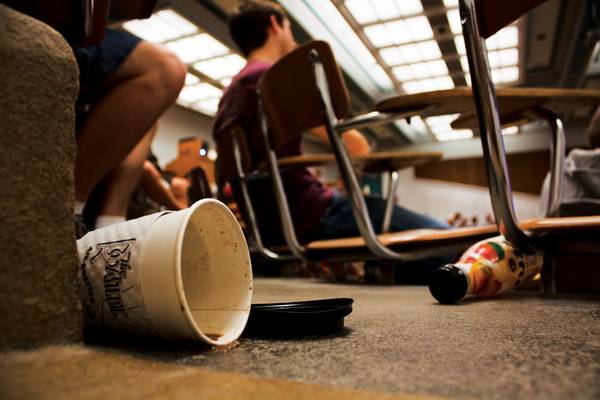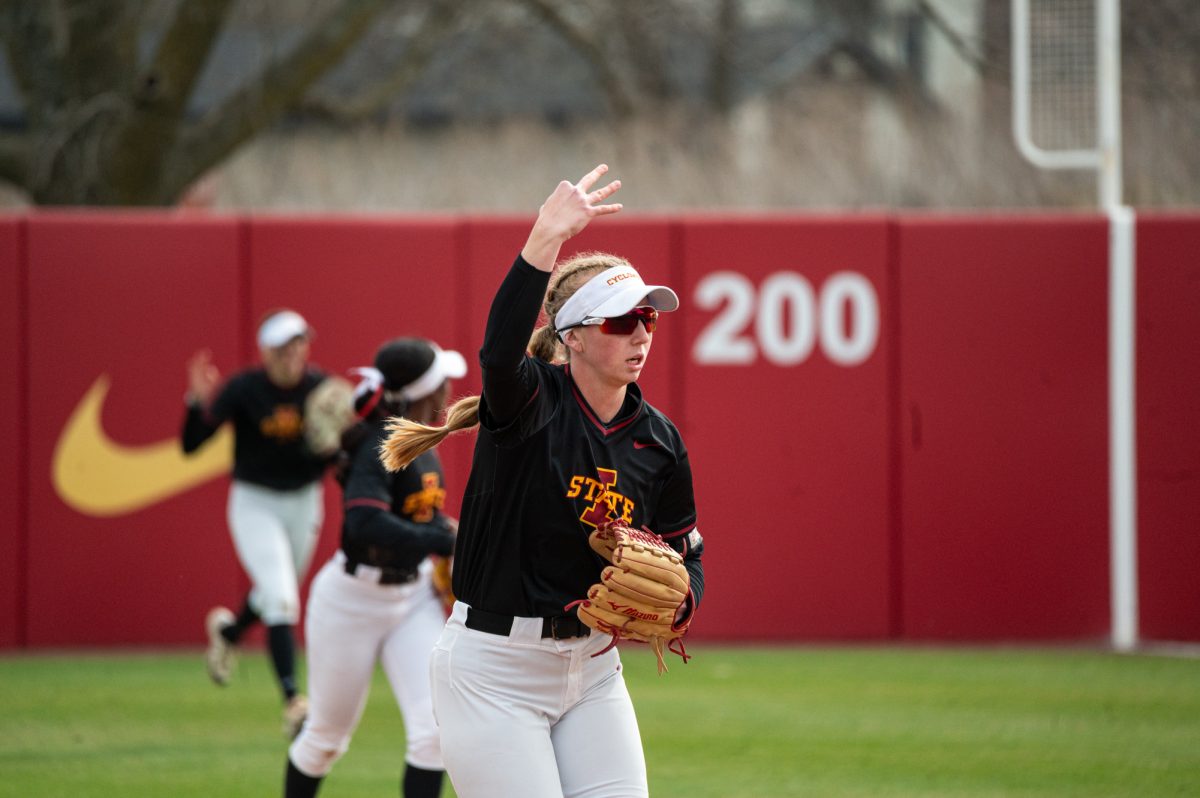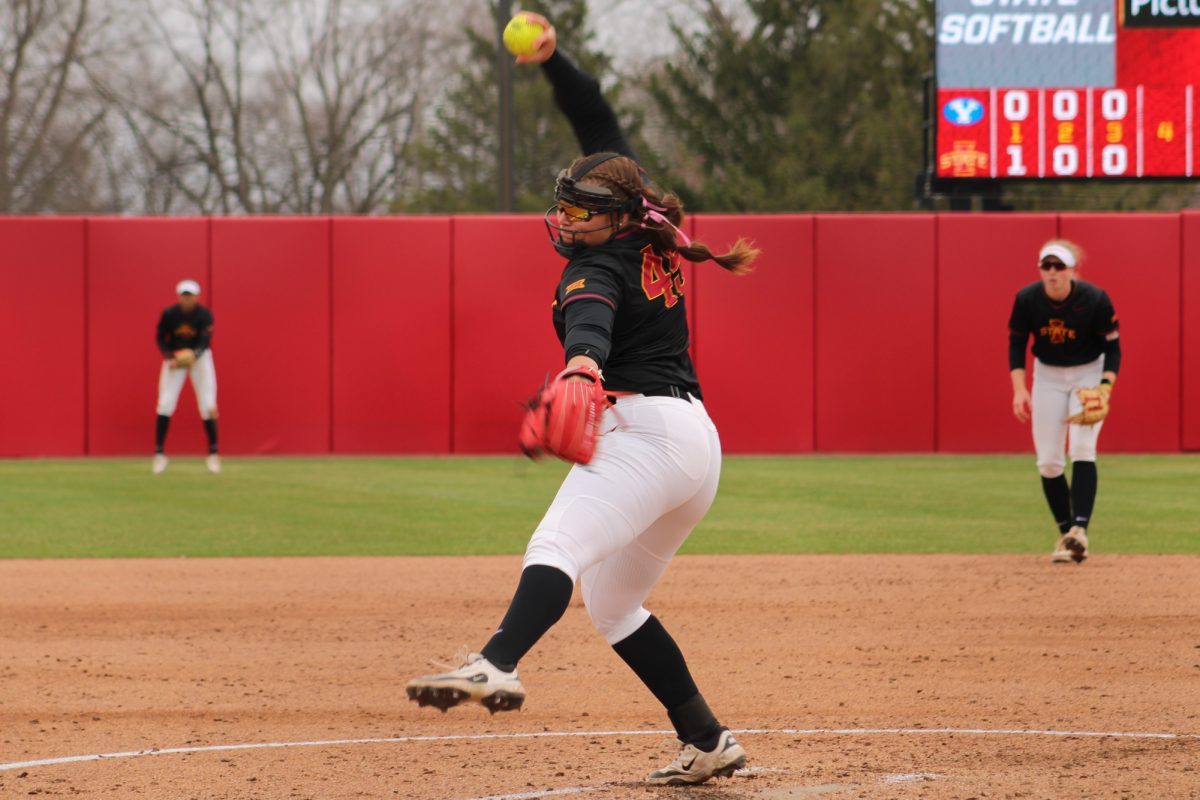Staff to clean more areas, less often

Photo illustration: Tim Reuter/Iowa State Daily
September 2, 2009
Cuts in the custodial services budget will result in a less frequent servicing schedule for buildings on campus.
The department’s budget was cut by $250,000 — the equivalent of four positions — for the 2010 academic year. Because of the cutbacks, the department is restructuring cleaning teams and re-evaluating buildings to determine the number of custodians and amount of time that can be allotted for service, said Paul Haggard, manager of custodial services.
Last year, each custodian was responsible for cleaning, on average, 55,000 square feet, Haggard said. This compares to an industry average of 35,000 to 45,000 square feet per custodian. As a result of the budget cuts, there are 220,000 square feet to make up for this year. This means that each custodian, on average, will be responsible for cleaning an additional 5,000 to 8,000 square feet.
While positions were cut from the budget, Haggard said, “No person lost their job, we lost positions. Last year we held seven positions… in anticipation (of cutbacks). I don’t want to have to hire anyone and then turn around and lay them off.”
Haggard said the department usually expects to lose half a position every year due to inflation. The four positions cut from this year’s budget come from 10 staff members who chose to take an early retirement.
The department is working to make the impact on students and faculty as painless as possible.
“We want to provide good services to the university, so this is hard for us, too,” Haggard said.
The changes that will be most noticeable to students and faculty will result from a schedule that allows for less frequent cleaning.
General classrooms, teaching labs, open labs and seminar rooms will be cleaned three times per week, compared to five times per week in previous years, Haggard said. Research labs will be cleaned once per month instead of once every other week, and office spaces will be cleaned every other week instead of once per week.
“Depending on the building, there might be a drastic cut in the number of custodians servicing it, or it might stay the same,” Haggard said.
Busy buildings like Carver, Gilman and Gerdin are likely to maintain more custodian positions.
Haggard said students and faculty might notice unfamiliar faces cleaning buildings, rather than the custodial staff they are used to seeing, as a result of re-structuring teams and “trying to be proactive.”
“We’re asking for some patience, tolerance and understanding for the service we provide with the number of staff we have,” Haggard said.
Haggard said the custodial staff takes a lot of pride in its work. With more area to cover, sometimes custodians will have to stop cleaning a room before it is as clean as they would like it to be.
There are several ways students and faculty can help make custodial cuts more bearable.
“It’s kind of like public parks… Take care of what you take into class,” Haggard said, adding that most rooms already have a “no food or drink” policy.
Haggard also suggested that students pick up flyers or papers they see on the ground and take care of any spills that happen.
“This is a good opportunity to work with faculty, staff and students,” he said.
Recycling also factors into the equation. Haggard explained that if students and faculty recycle materials such as papers, glass and cans, there is very little left in the classrooms for custodians to deal with.
“One of our missions is to be on the leading edge of being sustainable, being green,” Haggard said.
He suggested that students and faculty use recycling bins, and to request them if they are not in a building.
Haggard also said he doesn’t know how the changes will affect the department in the winter.
“When winter hits, the priority is snow removal,” Haggard said.
During Iowa winters, the department focuses on making sure that entryways are cleared and made as safe as possible.
The bottom line, Haggard said, is that custodial services will try to “provide what we can with what we have to work with.”






